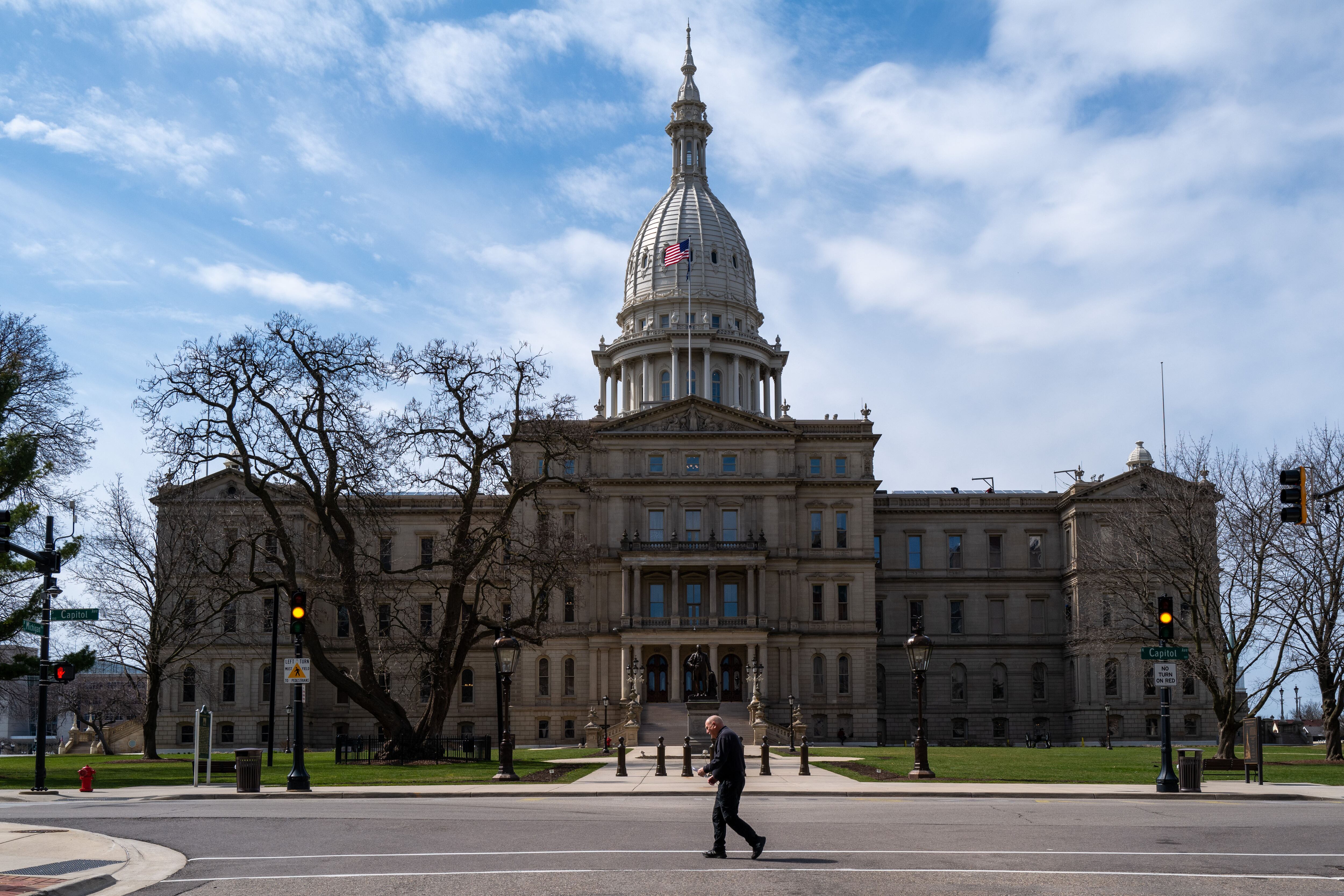Sign up for Chalkbeat Detroit’s free daily newsletter to keep up with the city’s public school system and Michigan education policy.
Michigan school leaders and advocates – particularly those in high poverty and shrinking districts – are bracing for potential widespread cuts as legislators work to come to an agreement on a state education budget Wednesday.
A tentative budget plan would mean no increase to the base foundation allowance in per-pupil funding for the 2024-25 school year. It would also gut state grants for school safety and mental health, which would likely lead to layoffs of staff such as counselors in districts across the state. One-time state funding for raises and pay would also reportedly be cut.
“There’s a lot of concern about what this budget would mean,” said Bob McCann, executive director of the K-12 Alliance of Michigan, an advocacy group focused on state school funding priorities. “It could mean layoffs all over the state. It would be devastating in a lot of ways.”
A conference committee of lawmakers was working Wednesday on an education budget agreement. Legislators are racing to meet the July 1 deadline to pass a budget.
A tighter state budget coupled with the end of federal COVID relief money this year will likely mean layoffs and cuts across the state, said Michael Addonizio, professor of educational leadership and policy at Wayne State University.
Districts with declining enrollments and higher percentages of students from families living in poverty stand to lose the most, Addonizio said.
“Whatever final agreement they come to, it’s probably going to be a clear step back from the last two years,” he said.
This year’s budget could be a vast contrast from the last two years, when lawmakers approved historic increases in spending for schools, raising the per-pupil amount to $9,608. For the first time last year, the state adopted an Opportunity Index, which gave additional funding to districts with high rates of poverty.
This year’s tentative plan shelves previous proposals from the governor, the House, and the Senate that would have decreased the state’s payments into the Michigan Public School Employees’ Retirement System. Those proposals would have freed up money to go into programs such as at-risk funding, support for English language learners, and universal pre-K, as well as school mental health staffing.
The idea of decreasing payments into the retirement system has been divisive since the governor first proposed it. Some Republican lawmakers said it was a “raid” of the funds and it has been a sticking point in budget negotiations.
The conference committee’s potential agreement would also decrease school districts’ payments into the retirement fund by 5.8% for the next fiscal year. However, school leaders say there is no guarantee that decrease will continue and wanted a decrease in payments to be permanently codified into law.
McCann said the savings for districts would not offset other cuts.
“Whatever amount of money that would mean for districts, it will be one-time money,” he said. “So, it can’t be used for anything related to staffing.”
Many districts have already adopted their own budgets, which they calculated using the governor’s proposal. Now, those districts will likely have to go back to the drawing board and make difficult decisions on what they will have to cut, said McCann.
Andrea Oquist, superintendent of Livonia Public Schools, said her district was “stunned” by news of what’s in the tentative agreement.
The potential massive cuts to school safety and mental health grants would be a huge blow to the district.
“This year, we got $3 million to provide extra psychologists, social workers, security personnel, security cameras,” she said. “That is being cut all the way down for LPS to $225,000 next year,”
Ypsilanti Public Schools Superintendent Alena Zachery-Ross said the district was hoping to see an increase in per-pupil funding, but did not budget for an increase out of caution.
Still, she said, rising operating costs — namely energy bills, transportation, food service costs, and benefits for employees — will make funding the district’s needs difficult without a per-pupil funding increase.
“This will make us really have to tighten up the belt quite a bit, and it will have us to really think about next year differently,” Zachery-Ross said.
School groups are actively lobbying lawmakers to rethink their tentative agreement. Among them is the Michigan Association of Superintendents and Administrators, which made a call to action to the public.
Once the agreement is voted out of committee, it will go to the House for a roll call vote before it goes to the Senate.
The final legislative budget then goes to the Gov. Gretchen Whitmer’s desk to sign. She can veto all or parts of the bill.
The budget will take effect Oct. 1.
Hannah Dellinger covers K-12 education and state education policy for Chalkbeat Detroit. You can reach her at hdellinger@chalkbeat.org.
Alex Klaus is a summer intern for Chalkbeat Detroit. You can reach her at aklaus@chalkbeat.org.






